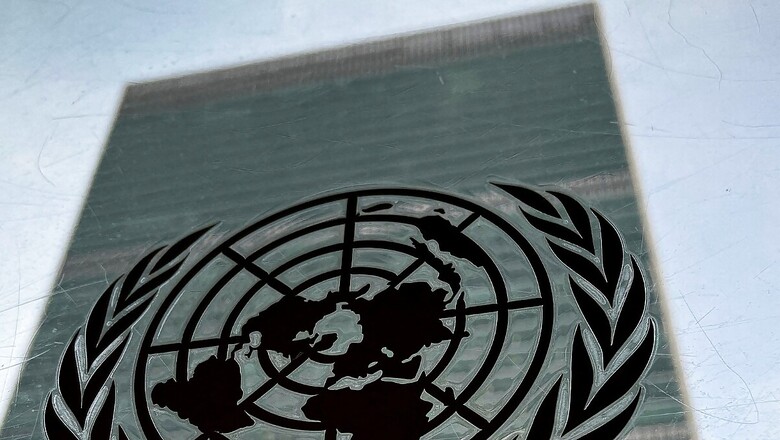
views
In today’s time, some issues are too big for countries to handle on their own. The world is increasingly interconnected and interdependent and countries need to work together, and they do so in part through international organisations. These organisations facilitate cooperation and encourage diplomatic solutions to global problems.
International organisations are such organisations that have membership from across the states and whose activities are exercised at the international level. Organisations may be established by a treaty or be an instrument governed by international law and possessing their own legal personality.
In today’s Classes With News18 know the list of the most powerful organisations in the world and their features:
United Nations (UN)
As the first on our list of international organisations, the United Nations (UN) is the most popular intergovernmental institute responsible for the prevention of war and conflict in the world. The United Nations is an interstate organisation that is made up of 193 nations and 2 observer nations. UN’s goal is to foster peaceful co-existence and security at the international level. The formation of the United Nations was necessitated by the event of the Second World War in the year 1945. The UN promotes cordial relations between nations, promotes international cooperation, and serves as a central focus for coordinating national efforts. The United Nations is headquartered in New York City, on international territory, with main offices in Geneva, Nairobi, Vienna, and The Hague.
World Health Organization (WHO)
The World Health Organisation (WHO) is a United Nations specialized organisation in charge of international public health. WHO is the body that sets health standards on the global level and monitors health issues across the globe. It has six semi-autonomous regional offices and 150 field offices worldwide, with its headquarters in Geneva, Switzerland.
United Nations Children’s Fund (UNICEF)
United Nations International Children’s Emergency Fund, Currently known as United Nations Children’s Fund is a United Nations organisation that provides humanitarian and developmental aid to children around the world. With a presence in 192 countries and territories, immunization and disease prevention are among UNICEF’s initiatives. The primary objective of the organisation is to provide humanitarian support to children across the globe by ensuring that the rate of hunger and poverty is drastically reduced, promoting good health, quality education, clean energy, sustainable cities and communities, and the general well-being of people. UNICEF was established and became active on December 11, 1946. The headquarters of the organisation is located in New York.
South Asian Association for Regional Cooperation (SAARC)
South Asia’s major intergovernmental organisation and geopolitical union are the South Asian Association for Regional Cooperation (SAARC). Afghanistan, Bangladesh, Bhutan, India, the Maldives, Nepal, Pakistan, and Sri Lanka are its members. As of 2019, the SAARC makes for 3 per cent of the world’s land area, 21 per cent of the world’s population, and 4.21 per cent of the global economy.
World Trade Organisation (WTO)
World Trade Organisation (WHO) is an interstate organisation whose framework regulates and facilitates the exchange of goods and capital at the international level It began operations on January 1, 1995, as a result of the 1994 Marrakesh Agreement, which replaced the 1948-established General Agreement on Tariffs and Trade (GATT). One of the targets of the organisation is reducing tariffs and other barriers to trade. With 164 member states representing over 96 per cent of global trade and GDP, WTO is the world’s largest international economic organisation.
United Nations Educational, Scientific and Cultural Organisation (UNESCO)
The United Nations Educational, Scientific and Cultural Organisation (UNESCO) is a United Nations specialized agency formed on November 16, 1945. UNESCO is a United Nations (UN) specialized agency charged with the duty of promoting world peace and security through international cooperation in education, science, and culture. It consists of 193 member states, 11 associate members, and nongovernmental, intergovernmental, and corporate sector partners. UNESCO is headquartered in Paris, France, and has 53 regional field offices and 199 national commissions to help it carry out its global mandate.
International Monetary Fund (IMF)
The International Monetary Fund (IMF) is one of the most prominent international organisations and is yet another powerful specialized agency of the UN. It works to promote global monetary cooperation, secure financial stability, facilitate international trade, promote high employment and sustainable economic growth, and reduce poverty around the world while relying on the World Bank for resources on a periodic basis. The organisation was formed on December 27, 1945, with its headquarters in Washington D.C, United States. International Monetary Fund has 190 member states. The official language of the organisation is English. The Articles of Agreement of the International Monetary Fund is the treaty upon which the organisation was established.




















Comments
0 comment